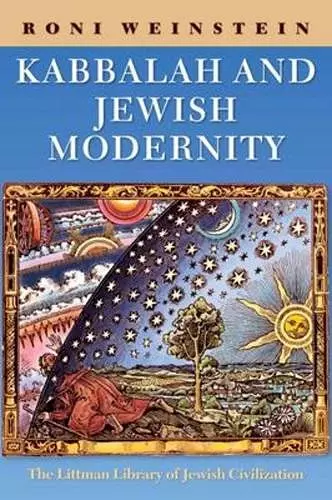Kabbalah and Jewish Modernity
Format:Paperback
Publisher:Liverpool University Press
Published:16th Feb '24
£24.99
Supplier delay - available to order, but may take longer than usual.

Something crucial and quite unprecedented happened to kabbalah in the sixteenth and seventeenth centuries. Though it had previously been considered a highly secretive and esoteric tradition, its practitioners began to spread its doctrines throughout the Jewish world with missionary zeal. Their goal was ambitious: no less than the remodelling of the religious and ethical attitudes of the entire Jewish population, a reformation of Judaism. Few aspects of Jewish life and religious practice were not changed as a result of the spread of kabbalah.
These innovations originated mainly in the city of Safed in Galilee. They were introduced by kabbalistic adepts, but would not have gained broad acceptance if they had not made sense to people in terms of their everyday lives. The kabbalistic corpus that emerged should thus be interpreted not just as the elaboration of a secretive literary tradition, but as a response to the needs of Jewish society in its manifest historical context. In addition, Roni Weinstein argues, these kabbalistic innovations were partly a response to changes in the Catholic world-view, revealing an intimate link with Counter-Reformation Catholicism that is explored here for the first time. The religious and political changes taking place in contemporary Ottoman settings also contributed to these changes.
The effect of these developments on Jewish culture was nothing short of revolutionary, deeply affecting people’s lives at the time and also laying the foundations for change in future generations. Yet they were not presented as revolutionary: the early modern kabbalists understood that they would only succeed in spreading their message if they presented their doctrines as the natural continuation of what went before.
Weinstein’s sociological reading of mystical texts encompasses a number of methodological innovations, including the need to consider the impact of the non-Jewish environment in the fashioning of Jewish texts. He sees the emergence of ‘Jewish modernity’ as the result of developments that were intrinsically Jewish rather than as a response to outside influences during the Enlightenment; controversially, he therefore places its origins in the Mediterranean world of the late sixteenth century rather than in eighteenth-century Berlin. His argument is based on a wide range of Jewish sources—including theological tracts, kabbalistic and ethical literature, hagiographies, mystical diaries, halakhic rulings and responsa, and community and confraternal regulations—as well as...
Reviews
'A significant, provocative contribution to the literature.'
S.T. Katz, Choice
'A truly impressive impressive of original and seminal scholarship . . . extraordinarily informative, exceptionally well-written, organized, and presented, making it unreservedly recommended for both academia as well as non-specialist general readers with an interest in the subject.'
Midwest Book Review
‘Roni Weinstein challenges the common assumption that the kabbalistic world-view owes its popularity to its theological and metaphysical content. Rather, he argues, the social context of kabbalistic thought is at least as significant. Weinstein has written an exciting and groundbreaking book which raises important new questions. If he is correct, his book is a landmark breakthrough.’
From the citation for the Goren-Gottstein Prize for the Best Book in Jewish Thought 2010–2012
‘Weinstein brings a totally fresh approach to the subject … his understanding of kabbalistic texts as a window into the cultural, social, and psychological realities of the beginning of the modern period … enables them to be perceived, for the first time, in the wider context of early modern mediterranean society … From this perspective, the kabbalistic texts developed in Safed are not so much the continuation of an earlier tradition but a response to the process of modernization that dominated the period in a way that changed every reality… Weinstein’s explanation of why it was that kabbalah developed in the time and place that it did is convincing … Overflowing with original ideas, his work offers a breakthrough that can be considered revolutionary. His connecting the development of kabbalah to the development of modernity makes this a very modern book … eminently readable because it contextualizes palpable human concerns within the broad intellectual panorama of the times rather than limiting itself to the confines of “kabbalah studies” or “Jewish thought”.’
Jonathan Garb Zion
'This book is essential for understanding early modern Jewish religious thought and would be a valuable addendum for studies on the broader impact of early modern movements in Christianity. The English is polished and no previous knowledge of kabbalah is necessary for full comprehension. The concise text is rich in content and stimulating in its broad outlook. This study is not only a useful tool for crosscultural comparisons but it itself is a model for such a study. It could only be written by a person who has mastery both in early modern history and in early modern thought both Jewish and general. Luckily, the author meets these requirements and the result is a model monograph.'
Shaul Stampfer, Religious Studies Review
ISBN: 9781837640546
Dimensions: 234mm x 156mm x 23mm
Weight: 368g
228 pages
abridged edition